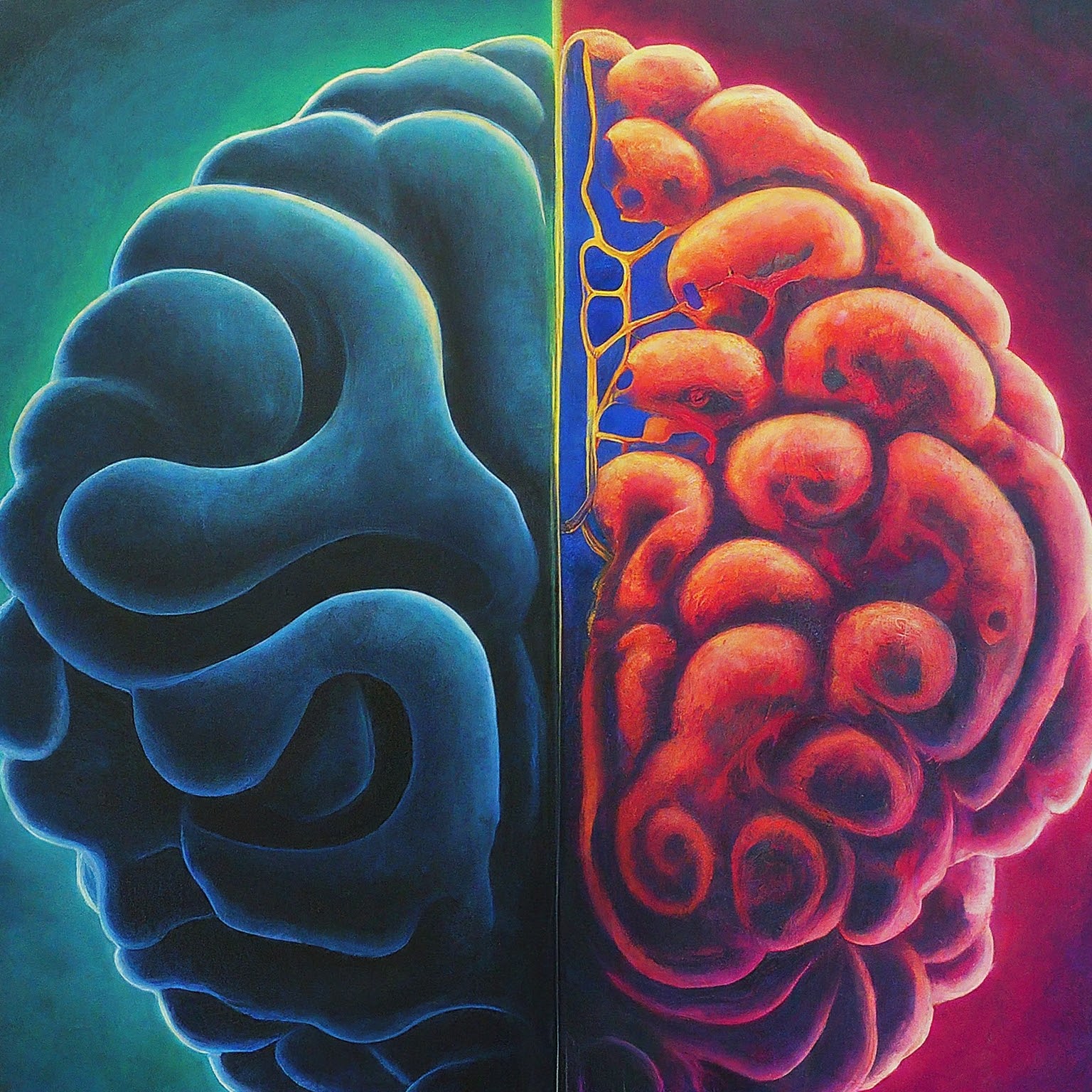Depression casts a long shadow, enveloping millions worldwide in its clutches.expand_more While existing treatments offer relief to many, their limitations are undeniable. In this quest for new pathways to healing, a curious molecule emerges from the fringes of science: N, N-Dimethyltryptamine, or DMT. Naturally occurring in plants and even produced by our brains, DMT boasts a history steeped in mystery and controversy.
This post delves into the depths of this intriguing molecule, navigating the current understanding of its potential effects on depression while acknowledging the limitations and ethical considerations surrounding its use. While DMT’s future in mental health remains unwritten, this exploration aims to shed light on its emerging role in the quest for brighter tomorrows, free from the darkness of depression.
DMT: A Trip To Get Away From Depression?
Understanding Depression
Depression isn’t just a feeling of sadness; it’s a pervasive darkness that can engulf thoughts, emotions, and energy. Globally, over 264 million people struggle with this condition, experiencing persistent feelings of hopelessness, loss of interest, and changes in sleep and appetite.
While the causes are complex, a mix of biological, psychological, and social factors play a role. Existing treatments like medication and therapy offer a lifeline for many, but their limitations are evident. Some individuals experience suboptimal responses or struggle with side effects, highlighting the need for innovative approaches.
DMT and its Mechanisms
DMT, with its rapid-fire effects, acts like a whirlwind in the brain. It dances with neurotransmitters like serotonin, potentially nudging them to interact in new ways. This intricate dance might hold the key to unlocking its potential against depression.
Neuroplasticity Boost: Imagine your brain as a network of pathways. DMT, some theories suggest, could act like a gardener, pruning away rigid connections and encouraging the growth of new ones. This “neuroplasticity” might help the brain adapt and overcome negative patterns associated with depression.
Emotional Processing Power-Up: Feeling stuck in a rut of negativity? DMT might offer a helping hand. Enhancing emotional processing and integration, it could help individuals confront and work through difficult emotions, potentially leading to a shift in perspective and emotional resilience.
Quieting the Inner Critic: Negative thought patterns are a hallmark of depression. Some researchers believe DMT could help silence this inner critic by reducing the activity of brain regions associated with negativity and self-doubt. It’s like hitting the mute button on those persistent negative voices.
But hold on! This is all still in the realm of theories and early research. More studies with larger groups, longer follow-up periods, and robust control measures are crucial before we fully understand how DMT works and its potential benefits and risks.
Current Research on DMT and Depression
The quest to unlock DMT’s potential for depression treatment has seen promising early glimmers. Studies have shown positive results in reducing symptoms, but there are important caveats:
- Small-scale studies: Most research involves just a few dozen participants, making it difficult to draw definitive conclusions.
- Limited follow-up: We don’t know yet if the effects are sustained over time.
- Placebo power: The mind is powerful, and even sugar pills can sometimes alleviate symptoms. Differentiating real effects from placebo is crucial.
- Ethical considerations: The use of psychedelic substances involves complex ethical questions regarding informed consent and potential risks.
DMT: Experience, Facts, & Side Effects
DMT, the enigmatic molecule we’ve been exploring, isn’t just about potential treatment; it also boasts a unique and often intense experience. But before diving in, let’s be clear: this is not a call for self-experimentation. DMT is a potent substance with potential risks, and its use outside controlled research settings is dangerous and illegal in many places.
The DMT Experience: Described as “breaking through to other realities” or “meeting alien entities,” DMT journeys are often characterized by vivid visuals, intense emotions, and a profound sense of connection to something beyond oneself. While fascinating, these experiences can be challenging and unpredictable, requiring careful preparation and support.
Facts & Figures: Naturally occurring in plants and even produced by our own brains in trace amounts, DMT has a long history in indigenous cultures and spiritual practices. However, it’s classified as a Schedule I controlled substance in many countries due to its potential for misuse and abuse.
Understanding Side Effects: Like any powerful substance, DMT carries potential side effects. These can range from physical reactions like increased heart rate and anxiety to intense emotional experiences and psychological distress. It’s crucial to remember that everyone reacts differently, and unpredictable outcomes are possible.
Ethical Considerations and Future Directions
As we venture deeper into the realm of DMT and its potential for depression treatment, ethical considerations loom large. This is not just about individual safety; it’s about respecting the inherent complexities of human experience and navigating uncharted territory with responsibility.
Informed Consent: When exploring novel treatments, ensuring informed consent is paramount. Individuals considering DMT must fully understand the potential risks, uncertainties, and the intense nature of the experience. This consent must be free from coercion and based on accurate, unbiased information.
Balancing Hope and Caution: The potential of DMT offers a glimmer of hope for those struggling with depression. However, we must avoid sensationalizing or overpromising its effects.
Cultural and Legal Landscapes: DMT’s history intersects with diverse cultural practices and carries complex legal implications across the globe. Respecting cultural sensitivities and adhering to legal frameworks are crucial in responsible research and development.
The Future Beckons: While the path ahead is filled with uncertainties, the future of DMT research holds promise. Identifying optimal dosing and administration methods, investigating potential risks and long-term effects, and exploring combination therapies with traditional treatments are just some of the exciting avenues waiting to be explored.
Rigorous Science, Responsible Development: As we move forward, rigorous scientific research and responsible development are essential. This means prioritizing participant safety, upholding ethical standards, and collaborating with diverse stakeholders, including researchers, clinicians, communities, and policymakers.
Conclusion
This exploration of DMT and depression has shed light on a captivating molecule with intriguing potential. However, it’s crucial to remember that DMT is not a magic bullet. It’s a complex substance with unknowns and potential risks, and its use outside of controlled research settings is dangerous and irresponsible.
While further research holds promise, responsible development, and ethical considerations must guide the way. Only then can we truly explore the potential of DMT and other novel approaches to illuminate the path towards a brighter future for those struggling with depression?
FAQs

Alex is a seasoned writer and researcher, specializing in psychedelic studies and mental health. Known for insightful and authoritative content, he combines extensive knowledge with a passion for exploring wellness and alternative therapies. Alex’s work is a trusted resource for readers delving into the world of mental well-being.


Leave a Reply